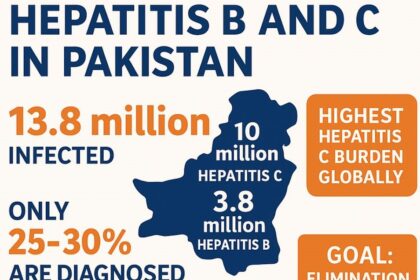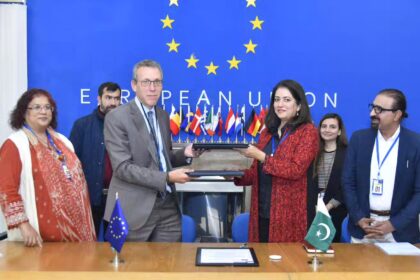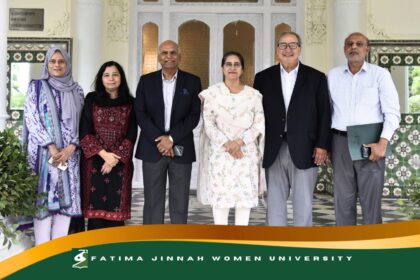Pakistan Pushes Toward Climate-Smart, High-Productivity Farming as Livestock Genetics & Genomics Conference Concludes at Arid University
Rawalpindi: Pakistan’s livestock sector received a major scientific boost as the Two-Day Livestock Genetics & Genomics Conference 2025 concluded at Pir Mehr Ali Shah Arid Agriculture University Rawalpindi (PMAS-AAUR), bringing together leading experts from across the country to highlight how modern genetics and genomics can transform national livestock production. Held under the theme “From Genes to Sustainability,” the conference underscored the urgent need for advanced breeding technologies, genomic selection, and data-driven herd management to strengthen food security and drive climate-smart agriculture.
The event was jointly organized by the Institute of Animal Sciences (IAS) and the National Center for Livestock Breeding, Genetics & Genomics (NCLBG&G), serving as a high-level platform for scientists, geneticists, breeders, policymakers, industry professionals, and students to exchange breakthrough research and practical solutions for Pakistan’s evolving livestock challenges.
Speaking to participants, PMAS-AAUR Vice Chancellor Prof. Dr. Qamar-uz-Zaman said the conference reflects the University’s commitment to modernizing the livestock sector through evidence-based innovation. He noted that advances in livestock genetics and genomics can significantly enhance productivity, lower production costs, and support climate-smart, resilient farming systems. He commended the collaborative efforts of academic and industry partners who are working jointly to develop a more sustainable and food-secure Pakistan.
Meritorious Prof. Dr. Muhammad Younus (DLA.I, T.I.), Vice Chancellor of UVAS Lahore, stressed that genomic selection, precision breeding, and data-driven herd management have the potential to reshape production systems nationwide. He emphasized that healthier animals, improved feed efficiency, stronger disease resistance, and reduced environmental footprints are achievable goals if universities, government institutions, breeders, and private-sector partners work in close coordination.
During the conference, participants reviewed advanced research aimed at improving the productivity and resilience of dairy cattle, calves, heifers, meat animals, sheep, and goats. Discussions highlighted the role of genomics in developing livestock better suited to Pakistan’s climate stresses, evolving market needs, and long-term sustainability requirements.
Read in Urdu: آریڈ یونیورسٹی میں لائیو اسٹاک جینومکس کانفرنس، جدید تحقیق کے نئے راستے کھل گئے











